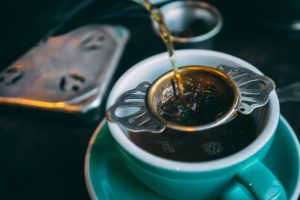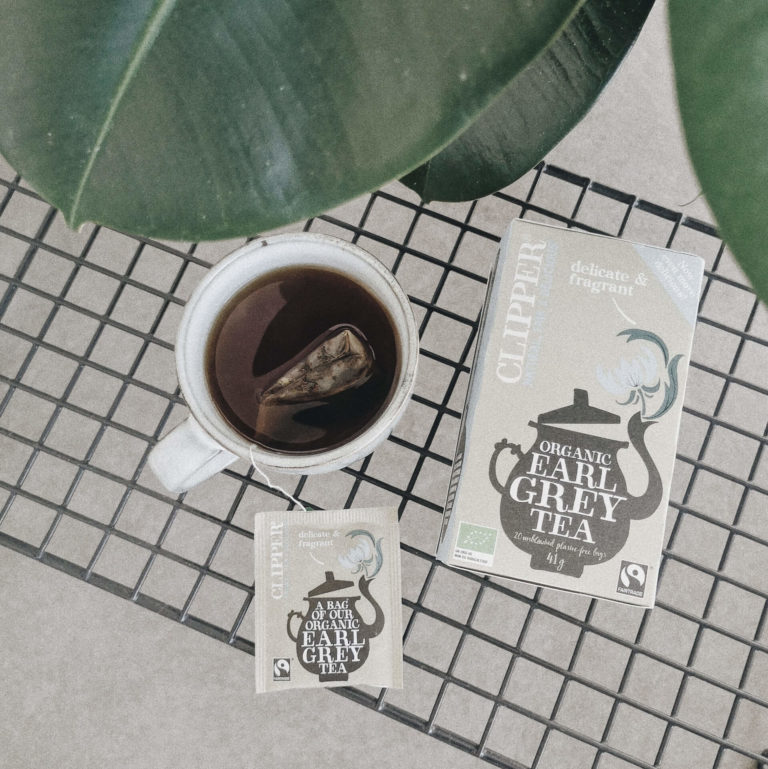Intermittent fasting is an incredibly beneficial diet: weight loss, blood sugar management, and autophagy are only a few of the positive effects you can expect. Most people rely on coffee during their fast to give them energy and curb their appetite. But what if you’d rather have tea sometimes? Does Earl Grey tea break a fast?
No, Earl Grey tea without any additives does not break a fast. The only downside may come because Earl Grey is a type of black tea and contains caffeine. Other than that, it may even help to make your fasting window easier.
Let’s take a closer look at how Earl Grey tea can help you fast, its overall benefits, and its potential side effects.
Does Earl Grey tea break a fast?
Typical intermittent fasting methods require that you stay under 1-2 kcal, and 1-2 carbs during your fast. They all allow both coffee and tea as neither contain enough calories to cause an insulin reaction. So under most fasting methods, Earl Grey tea doesn’t break a fast.
Of course, the tea shouldn’t contain any additives. Milk and sugar will cause an insulin response and will break your fast. Some sweeteners may be safe, but you need to check how many calories they have and if they can have any impact on insulin and blood sugar levels.
If you’re fasting at doctor’s orders, check with them about the types of teas you’re allowed to drink.
Can Earl Grey help you fast?
Yes, Earl Grey has many health benefits. While they are not all directly related to fasting or appetite, they can help you fast much easier, and they may even enhance some health benefits of intermittent fasting.
Benefits
It helps you stay hydrated
Hydration is key during a fast. The downside of coffee is that even though it is liquid, it isn’t a hydrating beverage. Actually, it is quite the opposite. Earl Grey, on the other hand, will help you stay hydrated. While it does contain caffeine, the amount is too small to have the same side effect as coffee. So you can drink it without worries throughout your fast. Also, a cup of Earl Grey can safely replace a cup of water.
It increases your energy
Since we were talking about the caffeine it contains, we should also mention that because of it, Earl Grey boosts your energy. Plus, it is much healthier than energy drinks, like Zipfizz.
It may aid digestion
No, Earl Grey isn’t specifically a digestive tea. But the flavonoids it contains may help lower the inflammation that is present in digestive issues. Both IBD and IBS have inflammation as a root cause, and anything that lowers that will aid digestion.
For instance, a few medical studies are showing the benefits of bergamot juice for digestion. Earl Grey is actually black tea combined with bergamot orange juice, so we can expect to see many of the bergamot’s benefits in Earl Grey tea.
One study looked at mice with colitis, a type of IBD, and found that bergamot juice reduced the number of diarrhea episodes.
Another study on animals showed black tea can help prevent and even treat stomach ulcers and other digestive problems.
There have been no studies conducted on humans, so we can’t know for sure that the same effects will be seen. But these results are certainly promising.
It could improve heart health
Bergamot has been shown to lower cholesterol and black tea has been proven to decrease blood pressure, despite its caffeine content.
Whether lowering cholesterol and blood pressure are among your fasting goals or not, these benefits are amazing for anyone and will help your health in the long-term.
It might help you lose weight
There are claims that Earl Grey tea may help lose weight. On one hand, there are the citrus components due to the bergamot orange juice that could help you burn more energy and more fat throughout the day. On the other hand, Earl Grey could improve the metabolic process, which means that your body will use energy more efficiently, and you’ll be able to lose weight more easily.
Side effects
Earl Grey tea is usually safe for most people, but there are some risks with overconsumption.
If you’re trying to lower your caffeine intake, you should know the amount found in Earl Grey tea isn’t too high and shouldn’t negatively impact your heart rate. Of course, if you were advised against it by your doctor, follow their advice first.
Medical research shows us some side effects related to very high Earl Grey tea intake. For instance, one case study showed a high consumption of Earl Grey may lead to muscle cramps and blurred vision. It is possible these symptoms were due to a compound found in bergamot juice, that blocks potassium absorption.
Tea also contains tannins. In moderation, these compounds are harmless. In excess, however, they can interfere with the absorption of iron in the body, which puts you at a risk for anemia. If you know you drink a lot of tea, regardless of its type, make sure you compensate by eating a lot of iron-rich foods.
Which Earl Grey Tea Product should you buy?
It is important to read the label and make sure the product is calorie-free and has no additives. If it does contain calories, it might break your fast. Due to those criteria, I recommend this product, which you can buy on Amazon. (Bigelow Earl Grey Black Tea)
The bottom line
Does Earl Grey tea break a fast? No, plain Earl Grey tea doesn’t break a fast. The only restrictions may happen in the case of a very strict religious fast, or medically imposed fasts when the doctor advises even against certain teas. These types of fasts are extremely rare though, so for most people, Earl Grey tea will be safe.
In fact, Earl Grey tea may even help you fast. It could improve your digestion, keep you hydrated, help you lose weight, and even improve heart health by lowering cholesterol and blood pressure. The tea is generally well-tolerated, but when consumed in high amounts, there could be some side effects like muscle cramps, blurred vision, and low iron.

